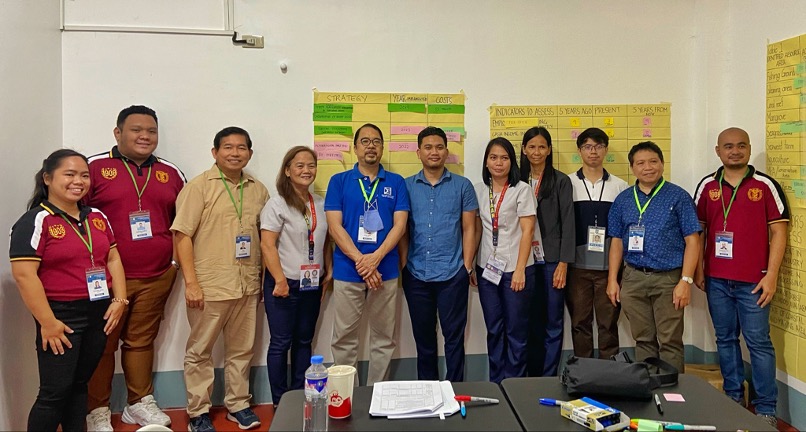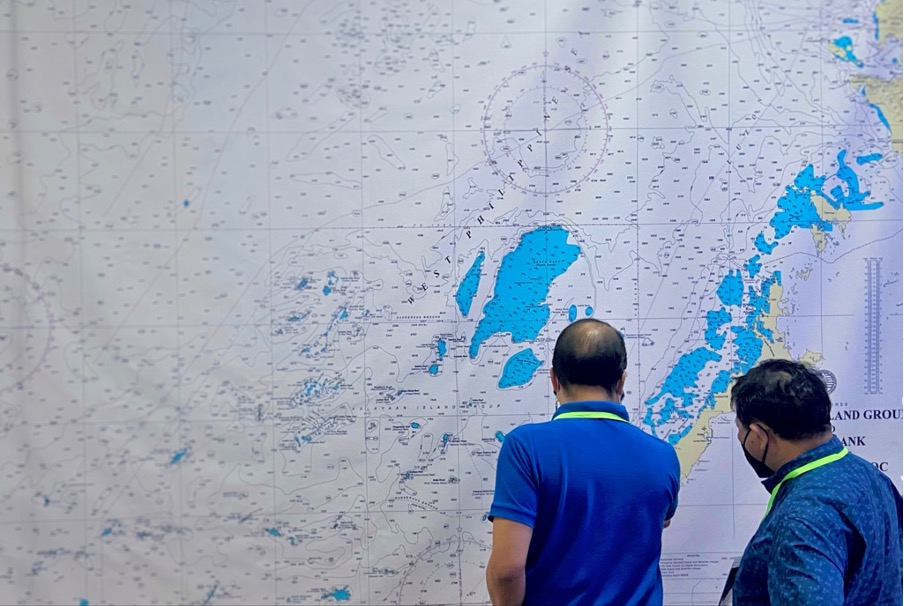Western Palawan, one of the study sites for the second year of the program, “Resource Inventory, Valuation, and Policy in Ecosystem Services under Threat (RE-INVEST): The Case of the West Philippine Sea,” represents a coastline area of the West Philippine Sea that needs attention and conservation initiatives.
The province of Palawan is considered the Philippines' "last ecological frontier" as it is home to the country's rich biodiversity, including several indigenous species of flora and fauna. However, the rapid pace of urbanization and human activities have led to the encroachment of ecologically sensitive areas where resources are exploited in unsustainable and environmentally destructive ways.
Funded by the Philippine Council for Agriculture, Aquatic and Natural Resources Research and Development of the Department of Science and Technology (DOST-PCAARRD), the program aims to integrate the results of the natural resource values into the system of national accounts for environmental management and conservation policies. It also hopes to develop a prototype framework for marine and coastal accounting that can be a basis for future ecosystem projects in the country.
To kickstart the operation, the Interdisciplinary Studies Center for Integrated Natural Resources and Environment Management (UPLB-INREM) and DOST-PCAARRD conducted field activities in Puerto Princesa City and in the municipality of Quezon on July 16-20, 2023.
The RE-INVEST and DOST-PCAARRD team organized focus group discussions and exploratory meetings with the Kalayaan Local Government Unit (LGU), Palawan Council of Sustainable Development (PCSD), Palawan State University (PSU), and Western Philippines University (WPU). This was to establish and strengthen linkages with local stakeholders.


Focus group discussion with delegates from the Kalayaan government unit was also conducted by the project team. Preliminary findings from their research activities conducted in Brgy. Pag-asa in April 2023 were presented during the discussion.

Dr. Gem Castillo, National Director of Economy and Environment Group in the Philippines (EEG) and RE-INVEST II Project Staff, emphasized the need for ecosystem accounting and valuation champions in different regions. The national government has been advocating the institutionalization of national accounting in the country, with the approval of the Philippine Ecosystem and Natural Capital Accounting System (PENCAS) bill.
Dr. John M. Pulhin, UPLB-INREM chair, highlighted during the meetings with Palawan State University (PSU) and WPU that UPLB, as a national university, is mandated to capacitate partner state universities and colleges (SUCs).
The exploratory meetings served as a venue to introduce the program to the stakeholders, present the terms of the proposed memoranda of understanding, and determine how to implement the field activities in Western Palawan.

The project team with representatives from Western Philippines University (WPU). (Image credit: Socio-Economics Research Division, DOST-PCAARRD)
The UPLB and DOST-PCAARRD team also paid a visit to the office of Atty. Noel E. Aquino, the Palawan Provincial Government-Environmental and Natural Resources Officer (PG-ENRO). The discussion centered around the importance of scientific data and research in shaping policy formulation and decision-making processes.
RE-INVEST program has a policy component dedicated to examining the legal and policy dimensions relevant to the West Philippine Sea (WPS) and providing recommendations for reforms and improvements.


The project team also conducted field activities in two locations: Brgy. Buenavista, Puerto Princesa City and Brgy. Alfonso XIII, Quezon. The initiative aimed to collect local contacts and gather preliminary data regarding the area's ecosystem services, including fisheries provisioning, coastal protection, and recreation services.

Dr. Canesio D. Predo and Dr. Asa Jose U. Sajise, co-leaders of RE-INVEST Project II, and Dr. Juan M. Pulhin and Dr. Gem B. Castillo, project specialists, led the field activities. They were accompanied by the project's research associates: Christian Ray C. Buendia, Pauline Cielo P. Palma, and Adrian Pablo V. Sasi. Ezekiel R. Dimagiba and Art John I. Agapito of DOST-PCAARRD's Socio-Economics Research Division.
The RE-INVEST Project II, "Natural Capital Accounting of Coastal and Marine Ecosystems in the West Philippine Sea," represents the second component of the broader RE-INVEST Program. It is being conducted by UPLB-INREM since March 2022 to March 2025. Project I and Project III, on the other hand, are under the administration of the UP Marine Science Institute and the Institute for Maritime Affairs and Law of the Sea of the UP College of Law, respectively.

